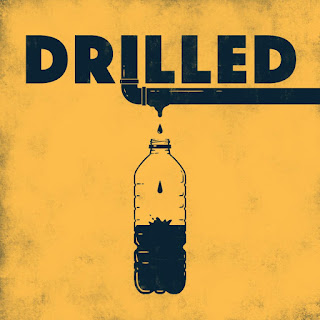It was 116 degrees the other day in Portland. A new study reveals the growth of "ghost forests"in the Louisiana Delta as invading salt water kills off trees. Last summer, it reached 100 degrees in Siberia. A drought desiccates the American West and Southwest. Wildfires use the dry conditions to incinerate thousands of acres.
Clearly, what's needed is a serious discussion on climate change and what we should do about it.
That's where the best climate podcast in the audio universe-- Drilled -- comes in.
With 2.6 million monthly users, Treehugger is one of the world’s largest
information sites dedicated to driving sustainability mainstream.
Treehugger calls Drilled "the best climate podcast" - and, as the leading sustainability website, they would know.
Drilled was also one of the first
climate podcasts, started independently at a time when host Amy
Westervelt was told again and again there was no audience for such a
thing. Turns out, there was, and Drilled has remained at the forefront
of the climate-pod movement as it has exploded in the last couple years.
On July 16, the show returns with its sixth
season, "Bridge to Nowhere," looking deeply at natural gas through
Amy's own research and reporting. As Treehugger
puts it, "Time will tell exactly when natural gas begins to decline in
the way of coal, but one thing is fairly certain: The executives pushing
it as a solution are not going to be too happy that the one and only
Amy Westervelt is on the story."
Amy is also taking aim at the oil industry's messaging that it's up to the consumer
to do their part for the environment. "It's very helpful to industry
that individuals feel personally responsible for plastic waste, and it
taps into a long history—starting with the infamous 'Crying Indian'
ad—of companies putting the onus on individuals for cleaning up or
avoiding waste, rather than addressing the problem at its source," she
says. "This 'solution' assumes that the industry's tale, that it is
always and forever simply supplying a demand, is true and that if
consumers simply consume less, supply will go down as well. History
tells us otherwise.”

Comments
Post a Comment
Thank You for your input and feedback. If you requested a response, we will do so as soon as possible.